|
I know that even the term “PD” can make teachers cringe. It’s probably no surprise to you that most PD is ineffective in supporting changes in teacher practices and student learning (Learning Policy Institute, 2017). I am on a mission to change what teachers think about PD. Here’s what I want all teachers to hear and believe: A high-quality PD experience has the potential to elevate your effectiveness as an educator and transform your relationship to the profession. I believe this because I was ready to quit teaching after my third year, but then I had my first positive PD experience. (To be fair, I’m sure I sat through some moderately helpful PD before that, but this was the first one that stayed with me because it was a true game-changer.) I’ve written about quality PD on the blog before, and I’ll suggest some avenues for finding your own meaningful sources of PD later in this post. So, I’ll address the other hesitation I often hear when I propose teachers take some time to learn something new, which is, “I don’t have time to learn something new.” Here is the tough love, hard-to-hear truth: This lack of time business is a myth we tell ourselves. Yes, teachers’ lives are bananas. You are incredibly busy, and anyone who hasn’t been a teacher or lived with a teacher cannot fathom how much teachers work outside of school hours. (If they did, they likely wouldn’t joke about how teachers have so much time off.) But, the reality is, we have time. We are just choosing to spend that time planning and grading the way we’ve always done it. If you’re constantly feeling short on time, if you’ve ever taken a sick day to catch up on grading (raising my hand here)...your current pace is unsustainable and your process needs an upgrade. You have the power to reorganize and reprioritize your approach to accommodate time to learn something new. Investing in a new way of doing things was a game-changer for me, and it can be for you too. It can radically shift your planning, your energy, and your students’ engagement and learning. Learning a new discussion protocol may help you deepen student discourse and consequently reduce the number of worksheets you decide to use (which saves you the time it takes to make or find a fitting worksheet, print the worksheet, stand in line waiting for the copy machine, copy the worksheets, and possibly hand staple the worksheets if it’s a packet and your copier isn’t fancy or is out of staples). Learning a new tech tool that automatically grades student exit slips, quizzes, or tests, can save you hours of hand grading each multiple choice assignment. Spending 10-15 minutes to learn something that will save you hours in the future? Yes, please! Even if you spent a whole hour learning something that would save you 2 hours, you would do it, right? I definitely would. Where could you go for personal PD? There are so many resources out there: podcasts, blog posts, books, Twitter chats, video collections, online courses… I couldn’t possibly share all that’s out there with you, but I can share my personal favorites. Since my intention (and the thing I’m talking ALL about this month) is saving teachers time, I’m going to share my podcasts favorites because you can listen to them while doing something you were already doing (e.g., commuting to work, exercising, grocery shopping, walking your dog). So, here are 6 of my go-to educational podcasts… Cult of Pedagogy. Jennifer Gonzalez has a wealth of knowledge and she makes it practical. She shares step-by-step instructions for how to implement the strategies she discusses. Truth for Teachers. Angela Watson talks about strategies too, with a particular lens on saving teachers time. Her tips are realistic and practical. Teaching While White. Hosted by 2 white female educators, this podcast discusses what it means to be a white teacher, how to acknowledge that reality, and teach in racially and culturally responsive ways. Google Teacher Tribe. This podcast has so many creative ideas for meaningful technology integration. They all center on using Google tools, but often, the pedagogical strategies are the gems, not necessarily just the tech elements. Better Leaders Better Schools. Leaders, this podcast is for you. More recent episodes have been intentional in explicitly naming that the podcast is targeted towards leaders that are looking to make change, or “ruckus makers” as the host, Daniel Bauer, calls them. Teaching Hard History. This podcast is for history teachers, but there is such value here that I think non-history teachers would benefit from learning about the historical inaccuracies and omissions we often leave out of children’s education as well as how to have conversations about difficult topics such as race and the realities of imperialism with your students. Finally, I have the ultimate PD experience for teachers interested in learning more about how to carve out more time for PD…For those of you who couldn’t make it to my 1-hour FREE masterclass this week, don’t despair! I’ve decided to hold two more sessions next week. If you’re ready for a deeper dive into the major shifts AND practical strategies for reorganizing your approach to planning and grading so that you can invest time to grow as a professional, my Work Less Teach More course is open for enrollment until March 24, 2020. Embrace the learning, amazing educators!
0 Comments
Leave a Reply. |
Details
For transcripts of episodes (and the option to search for terms in transcripts), click here!
Time for Teachership is now a proud member of the...AuthorLindsay Lyons (she/her) is an educational justice coach who works with teachers and school leaders to inspire educational innovation for racial and gender justice, design curricula grounded in student voice, and build capacity for shared leadership. Lindsay taught in NYC public schools, holds a PhD in Leadership and Change, and is the founder of the educational blog and podcast, Time for Teachership. Archives
May 2024
Categories |
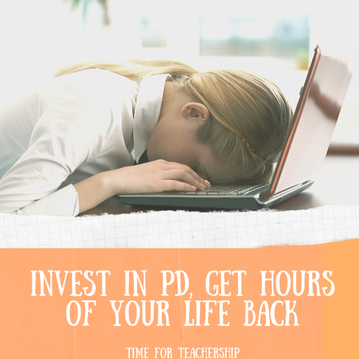
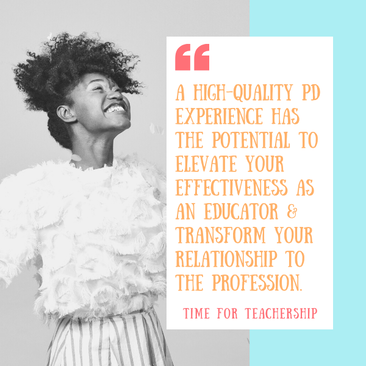
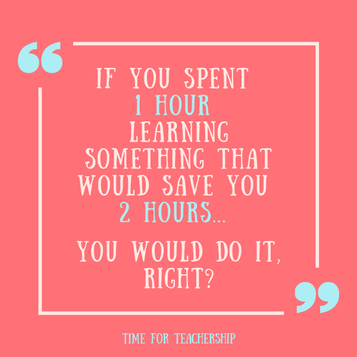
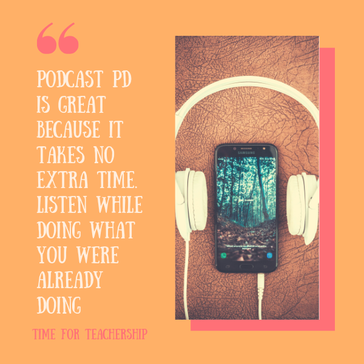
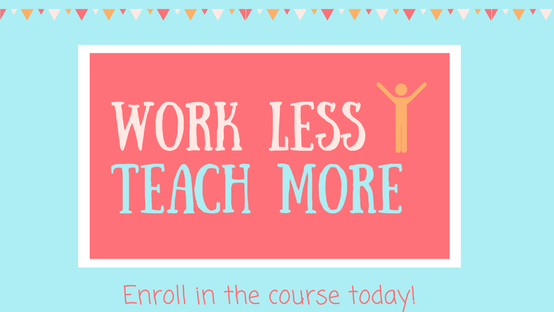

 RSS Feed
RSS Feed